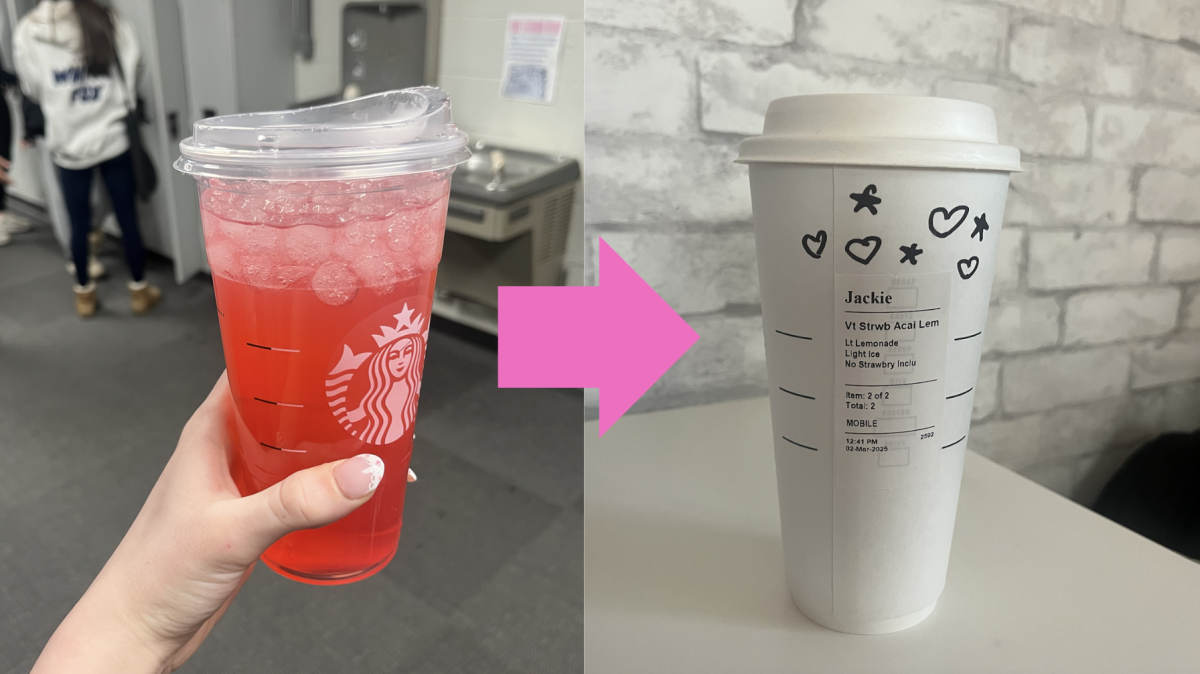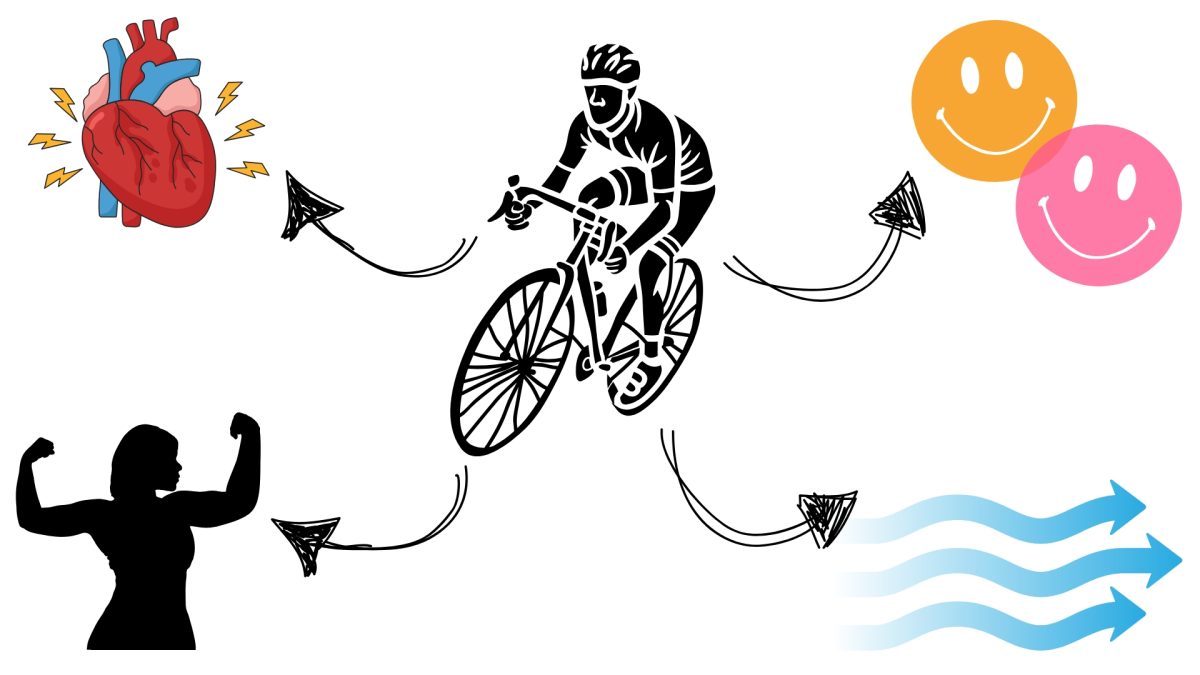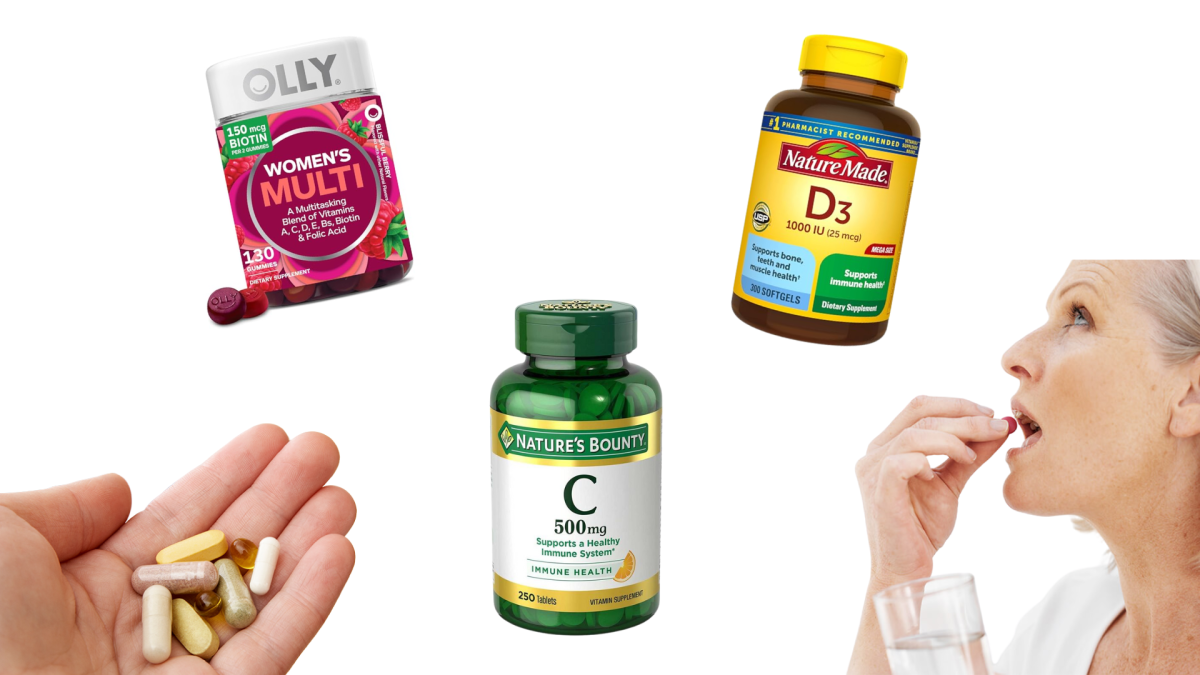Do teenagers need vitamins, or are they just another expensive health trend? With social media promoting self-care, many teenagers prioritize wellness. However, do they include vitamins in their daily routines? Some Benilde-St. Margaret’s students swear by taking certain vitamins, believing that they support their overall health and well-being. Others take them to enhance their performance in training or sports.
Senior Ella Pasqua takes daily supplements and vitamins as a routine habit. Her regimen includes a wide variety of supplements, such as marine-based magnesium, oil of black seed, vitamin D3, chloroxylenol, oregano, zinc picolinate, vitamin A, potassium gluconate, L-lysine, a woman’s gut health vitamin, and ashwagandha. While she takes them to support her overall well-being, she admits she isn’t entirely sure what most of them do. Like many teenagers, her vitamin routine is largely influenced by her parents. She takes these supplements because her mom assures her they are beneficial. “My mom just gives them to me. Most of them are for my health, some of them are for a cough I’ve had, and there are other ones for my hair,” Pasqua said.
For other students, vitamins and supplements are essential for improving athletic performance and focus. Senior Judah Johnson-Nixon, for example, takes a calcium supplement to support his bone health. He began incorporating calcium into his routine after visiting a physical therapist due to persistent soreness and knee pain while playing lacrosse. Senior Tommy Staples, on the other hand, doesn’t take traditional vitamins but relies on a pre-workout supplement to enhance his workouts. “I take it because I feel more focused when I’m in the gym, and it helps me recover faster,” Staples said.
Many common types of supplements are known to support overall health, including vitamins A, C, and D, as well as calcium, iron, zinc, and magnesium. However, the need for supplements varies among teenagers depending on their diet, lifestyle, activity level, and any existing vitamin deficiencies. Taking vitamins helps fill nutritional gaps, boosts energy levels, improves focus, and is more convenient for teens who have unbalanced diets to get the nutrients they need. Athletes may also turn to supplements to aid in recovery and performance. Senior Charlize Vang takes magnesium, vitamins D and C, and oregano oil. “They’re good for my health, apparently, and muscle recovery after sports,” Vang said.
Before you decide to take vitamins, you should know their importance. Most are unnecessary for teens who have regular diets, which causes excessive vitamin intake, and some vitamins aren’t supported by science. A balanced diet is often enough to maintain good health and provide essential nutrients; however, each person’s nutritional needs, including vitamins, can vary.




































![Teacher Lore: Mr. Hillman [Podcast]](https://bsmknighterrant.org/wp-content/uploads/2025/03/teacherlorelogo-1200x685.png)




